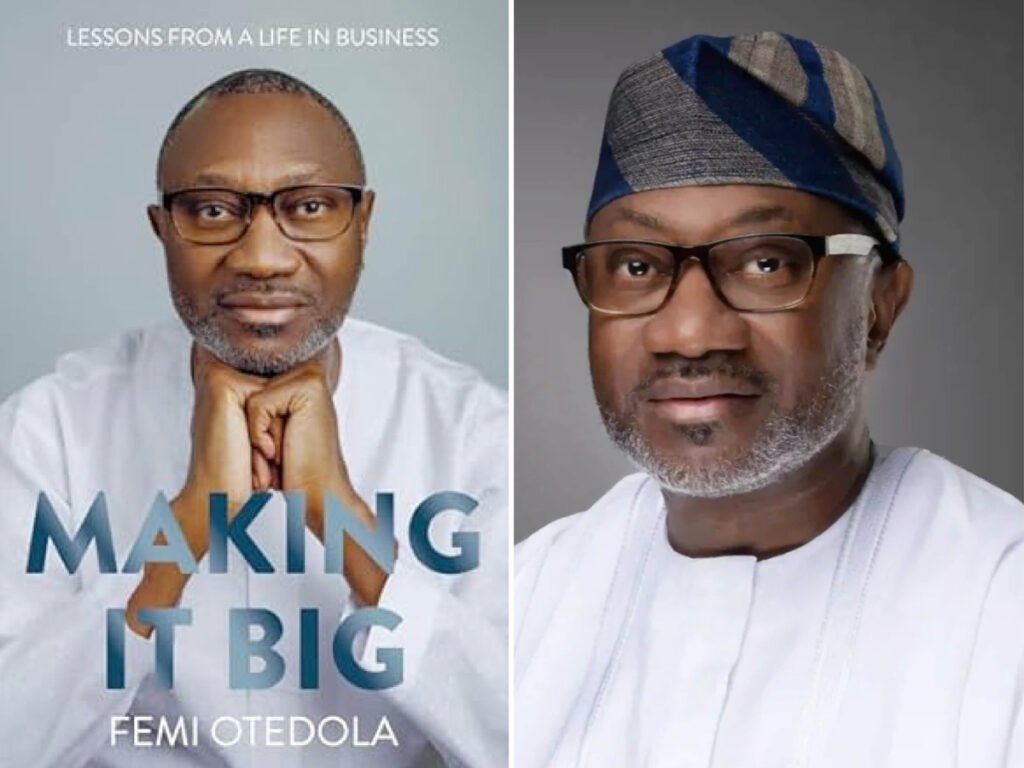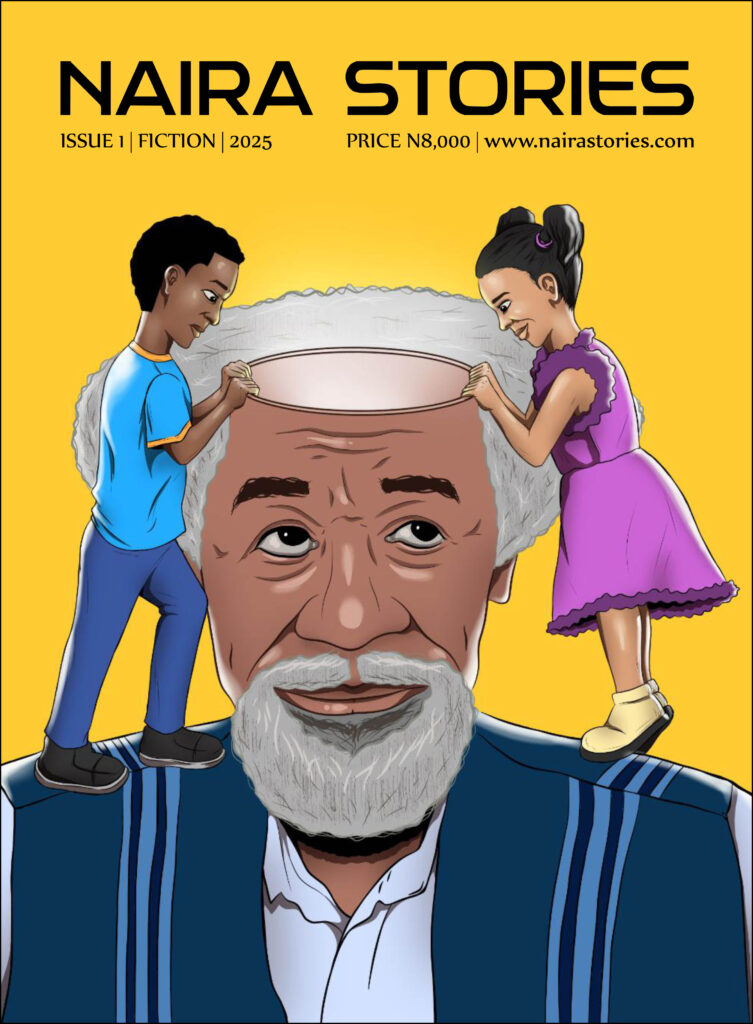It was reported this year that approximately five per cent of Nigerians have more than N500,000 in their bank accounts. This same year, the World Bank, in its latest report, predicted that poverty in the country would continue to rise in the coming years, potentially reaching 56 per cent by 2027. Sadly, this is not to mention the about 75.5 per cent of rural Nigerians currently living below the poverty line.
With these depressing indices, the question: ‘Who wants to make it big like Femi Otedola?’ should be in order. This is not a rhetorical question and should not be perceived as one. If we are to accord this question the seriousness it deserves, and ask everyone the question is thrown at, to, by a show of hands, indicate if they want to make it big like Femi Otedola, all hands will go up. My hand will be the first to go up, almost touching the sky. I would not be surprised if Ngozi Okonjo-Iweala, Akinwumi Adesina, Aliko Dangote, Arunma Oteh, and the like raise their hands above mine. And, I would not be shocked if Femi Otedola himself raises his hands above all raised hands.
Everybody wants to make it big. Nobody is interested in small things and people, especially when money, wealth, and influence are involved. Seldom does anybody want to deal or associate with someone or people who are at the nether rungs of success across all walks of life. Seldom, especially and unfortunately in Nigeria, would anyone raise an eyebrow if you have a good education and speak big grammar, without having a good influence and big money.
So, what does it mean to make it big, at least, the Femi Otedola way? The answer, though a bit complicated, is not far-fetched. Some of the answers have been supplied to us by Femi Otedola himself, a self-made entrepreneur and Forbes-rated billionaire who made his first billion by the age of 41. In his new 298-page part business book, part memoir published by Fo Books on August 18, 2025, titled ‘Making It Big: Lessons from a Life in Business’, Otedola taught us what it means to make money, lose money, and make money all over again, with the joy, pain, and lessons associated with the processes.
When I first heard about ‘Making It Big’ and the man who authored it, my mind did not go to the amount of money the author has, the businesses he has built, or the influence he has amassed. My mind did not go to the humanitarian and philanthropic work he does with his wealth and influence. My mind did not go to the fact that he hails from one of Nigeria’s prominent families — the son of the late Sir Michael Otedola, former governor of Lagos State, and Lady Doja. My mind did not even go to the viral revolution of how his late father loaned him £250,000 — approximately a whopping N515,222,500, as of the time of penning this reflection — to enable him to start his oil business.
On the contrary, as I reflect on ‘Making It Big’, ranked number three on Amazon’s best sellers in business biographies and memoirs, my mind goes behind the external realities and possessions of the author. I pondered the kind of mind and mindset he possesses. I transcended to the beginning of the ‘making’ without the ‘big’ and the bigness of the author’s life.
Humble beginnings of people like Otedola, which most people easily overlook or simply neglect when it comes to perceiving wealthy people and their riches, have always fascinated me. The money, influence, opulence, luxury — all the finesse of life and living that comes with wealth — are good, and should be desired. But how are they made? To put it right, how are they made big, the Femi Otedola way?
In my quest to make it big like Otedola, I have consulted mind scientists, billionaires, and experts in wealth creation across the world, of course, through their writings. One of such people was the American clergy and New Thought advocate, Wallace D. Wattles, who, between 1900 to 1910, authored some mind-changing books, including ‘The Science of Getting Rich’ and ‘The Science of Being Great’. Wattles opines that greatness and the capacity of getting rich are inherent in all men only if they are willing to overcome heredity and circumstances and exercise the creative power of the soul.
In ‘The Science of Getting Rich’, Wattle confirms the veracity of the import and essence of ‘Making it Big’ as Otedola lives and writes it. Wattle encapsulates this in his aforementioned book when he posited, “No man ought to be satisfied with a little if he is capable of using and enjoying more. The purpose of Nature is the advancement and unfolding of life, and every man should have all that can contribute to the power, elegance, beauty, and richness of life; to be content with less is sinful.” Otedola knows that to be content with less is sinful, which is why he is making it big — and, more importantly, teaching us how to make it big too.
I read Scot Anderson’s ‘Think Like A Billionaire, Become A Billionaire’ before Otedola’s book was published. But I see in ‘Think Like A Billionaire’ the basic principles behind Otedola’s wealth. Anderson tells us that “As a man thinks, so he is”. He buttresses this by saying, “If we took all of Trump’s money away, in a matter of time, he would be right back to where he is today, because of the way he thinks.” In line with this submission, do you remember when Otedola confessed that he lost billions of naira and almost committed suicide? But look at him today, teaching us how to make it big.
T. Harv Eker’s ‘Secrets of the Millionaire Mind’ exposes us to “the missing link between wanting success and achieving it.” Without mincing words, Eker tells us in the preface of the book that “It all comes down to this: If your subconscious ‘financial blueprint’ is not ‘set’ for success, nothing you learn, nothing you know, and nothing you do will make much of a difference.” Through the pages of Otedola’s ‘Making It Big’, one can easily see the subconscious drive to make it big, irrespective of the failures and challenges along the way.
Napoleon Hill, in chapter two of his seminal ‘Think and Grow Rich’, reveals that the starting point of all achievements, the first step to riches, is desire. He explains this further by submitting, “Only those who became ‘money conscious’ ever accumulate great riches. Money consciousness means that the mind has become so thoroughly saturated with the desire for money that one can see oneself already in possession of it.” Through the pages of Otedola’s book, it is easy to see that success consciousness and money consciousness are some of the recurring themes.
There are thousands of books about how to become a millionaire or a billionaire in any currency, and also how to make it big in any country or industry, but Otedola’s ‘Making It Big’ brings a unique perspective to it, especially in the Nigerian context, where the economy is recurrently unstable and poverty is increasing as the years go by. The uniqueness of the book is that it goes beyond just being a book. It has been described as a masterclass in attaining and maintaining a positive mindset, a book of hope — backed up by solutions — written to inspire entrepreneurs in Africa and from everywhere.
The Director General of the World Trade Organisation (WTO), Ngozi Okonjo-Iweala; former president of the African Development Bank Group, Akinwumi Adesina; and president and Chief Executive Officer (CEO) of Dangote Group, Aliko Dangote, in their reviews and testimonials of the book, described it as an “important” and “enriching account that effectively unpacks useful insights for surmounting business hurdles” and should be “a must-read for all business leaders, policymakers, and young people venturing into the world of entrepreneurship and business.”
Former vice president and treasurer of the World Bank, Arunma Oteh, properly captures ‘Making It Big’ as a “brutally honest” account of entrepreneurship in a developing country, adding that the book goes beyond glossy success stories to explore the uncomfortable but critical intersections between business, politics, and personal growth. On the other hand, she tells us that making it big like Otedola comes with true costs, choices, and compromises. Perhaps, she is redirecting us to the statement: “‘Making It Big’ is a masterclass in attaining and maintaining a positive mindset and a reminder that it is possible to defy the odds, no matter how stacked they are against you.”
In their reviews of the book, Okonjo-Iweala, Adesina, Dangote, and Oteh looked beyond physical riches to tell us that success in any endeavour comes from engaging the mind in creative ventures, including the simple act of reading a book, with the four of them recommending that ‘Making It Big’ should be “a must read.”
So, I ask again, for the umpteenth time: Who wants to make it big like Femi Otedola? This is not a question that should be answered in a hurry without some soul-searching, without positioning the mind for greatness, and without seeing oneself as making it big, even when they have not started making it big. It is a question that must be answered with a mind and mindset possessed by greatness and wealth. It is a question that must be answered by looking at business, life, and people the way Otedola looks at them, not necessarily copying him, wishing to be like him, dreaming to be wealthy like him, but by creatively opening oneself to success and opportunities against all the odds.
The approximately 95 per cent of Nigerians with less than N500,000 in their bank accounts, the 56 per cent of Nigerians at the verge of been thrown into poverty by 2027, and the about 75.5 per cent of rural Nigerians currently living below the poverty line, if all of them could ask Femi Otedola how he happened to make it big, the billionaire and philanthropist would look them in the eye and tell them the simple truth of how he already made it big in his mind and subconsciousness many years ago as youth when no one knew him or believed in him, before actually making it big, and now only telling us about it through ‘Making It Big’.




